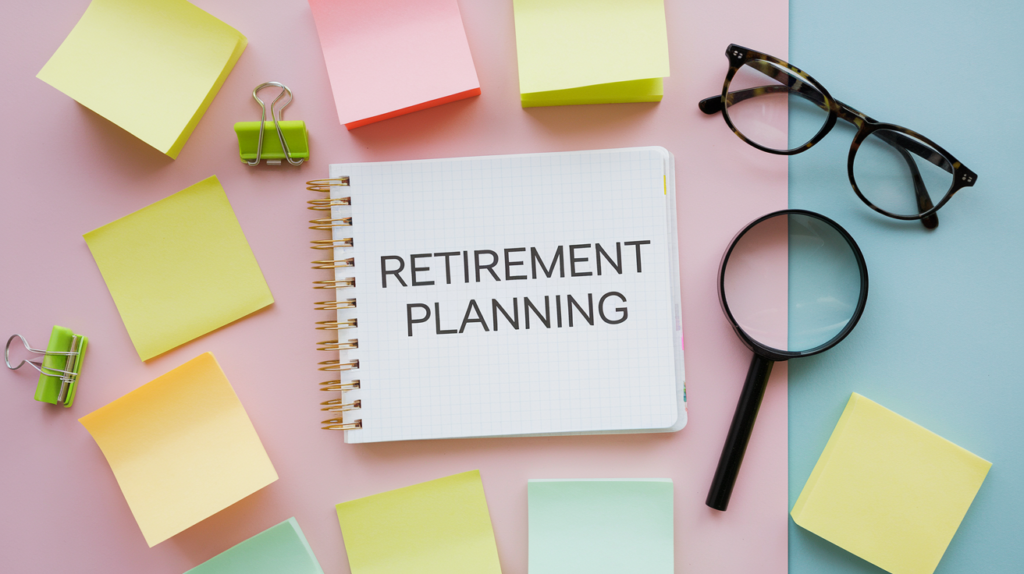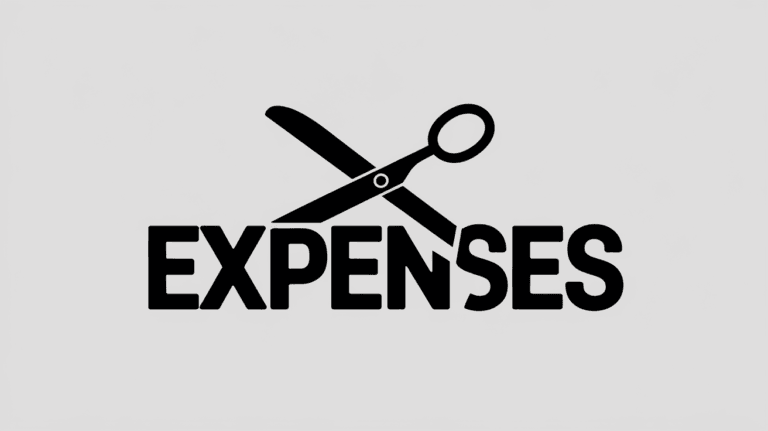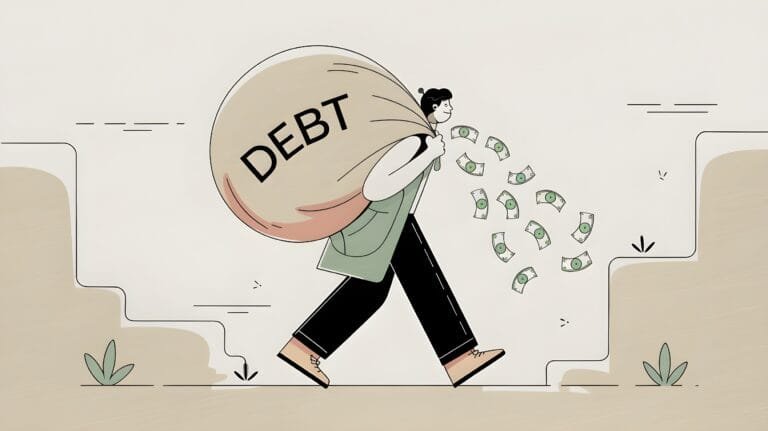It might seem unusual to think about a retirement plan when you are still in your 20s. Many individuals at this stage of life focus on immediate goals like paying off student loans or enjoying new-found freedom after leaving school. However, being young does not mean you should ignore your financial future. In fact, your 20s can be the most powerful time to set the stage for long-term wealth and security. By starting early, you give your money more time to grow, take advantage of valuable tax benefits, and build strong financial habits that last a lifetime. Waiting until your 30s or 40s to begin thinking about retirement can mean missing out on critical years of growth, opportunity, and confidence. For anyone who wants to enjoy financial freedom later on, taking action now is essential.
The Value of Time and Early Compounding
When starting a retirement plan as early as possible, the main advantage is time. Money placed into investments at a young age has decades to grow through compounding. Compounding means that the earnings from your investments generate their own additional earnings over time. This process can turn a relatively small initial amount into a much larger sum later in life. By beginning in your 20s, you allow your investments to cycle through multiple market expansions. Even if there are economic downturns along the way, the sheer length of time makes it easier to recover from losses. Many who delay investing until later decades must contribute significantly more per month to achieve the same balance that a younger individual could reach with smaller, regular contributions started years earlier. When you look back in your 50s or 60s, the decision to begin in your 20s can mean a difference of hundreds of thousands of dollars in your retirement accounts. Taking even small steps now can pay off in a substantial way later on.
Lower Financial Stress as You Age
In your 20s, retirement might feel distant. This stage is often about launching a career, moving to a new city, or exploring what life has to offer. Financial stability may not be your main focus. The surprising truth is that starting a retirement plan now is not just about the distant future; it also makes life less stressful down the road. Without careful early planning, many people in their 40s or 50s begin to panic about their financial future. They might suddenly realize that they have not saved enough, leading to anxiety, late-career rush, and even second jobs to compensate. By contrast, setting a retirement plan in your 20s creates a safety net that reduces stress during midlife. The feeling of knowing you have funds steadily growing can be comforting, allowing you to make more confident career moves, potentially switch jobs without panic, and even explore entrepreneurial ventures if you choose. The peace of mind that comes from having a solid financial foundation cannot be overstated.
Taking Advantage of Tax-Advantaged Accounts
Many retirement plans offer special tax benefits that can greatly accelerate your savings. In the United States, for example, accounts like a 401(k) or an IRA provide significant tax advantages. If your employer offers a 401(k) match, that is essentially free money added to your retirement plan. By starting in your 20s, you can maximize these employer contributions over a longer period. Even if your employer does not provide a match, tax-deferred growth means you pay less in taxes today or enjoy tax-free withdrawals in the future, depending on the type of account chosen. This can amplify your savings potential. The earlier you start, the more time you have for these tax advantages to work in your favor, and over the decades, that difference can turn into a substantial amount of extra money. When combined with the power of compound growth, tax advantages form a critical piece of your early retirement planning strategy.
Embracing Technology and Modern Investment Tools
It has never been easier to start a retirement plan, even with modest funds. Modern investment platforms, robo-advisors, and micro-investing apps offer user-friendly interfaces, educational materials, and low entry barriers. These platforms simplify the entire investing process, allowing you to open an account within minutes, set an automatic contribution schedule, and monitor your investments effortlessly. In your 20s, technology is often second nature, making these tools feel comfortable and accessible. Because these platforms frequently offer low or even zero commission trading, you can build a well-rounded portfolio without worrying about high costs. As you grow older and more experienced, you can adjust your strategy, explore more complex investment vehicles, or consult professionals. Starting with simple tools now helps you develop good habits and a deeper understanding of how markets work, ensuring that you are well-prepared for the complexities of wealth-building as you progress in life.
Building Discipline and Healthy Financial Habits Early
Developing good financial habits is often easier when you are young and more adaptable. Just as learning a foreign language is simpler for children, learning to manage your finances is more natural when you start early. By beginning your retirement plan in your 20s, you train yourself to consistently set aside money, make informed investment decisions, and avoid reckless spending. Over time, these habits become second nature. This discipline also tends to carry over into other aspects of life, whether it is managing debt more effectively, researching smarter spending choices, or becoming more strategic about job opportunities. In a sense, the act of initiating a retirement plan is not just about saving money; it is about shaping your mindset into one that values long-term stability and security. This change in perspective can lead to more thoughtful financial decisions at every turn, influencing the way you negotiate salaries, handle credit, and plan major life events.
Protecting Against Inflation and Rising Costs
Over time, the cost of living tends to rise. Housing, healthcare, and everyday expenses rarely remain stagnant. Inflation gradually erodes the purchasing power of your money, meaning that what you can buy today with a certain amount will likely be less in the future. Starting your retirement plan in your 20s allows you to invest in assets that historically have grown over time, helping your savings keep pace with or even outpace inflation. Equities, for example, have shown strong long-term growth that can protect wealth from the silent threat of inflation. By investing steadily from your younger years, you give yourself a better chance of maintaining, or increasing, your purchasing power in retirement. Waiting until later years to start investing often leaves individuals scrambling to contribute larger sums to catch up with rising costs. By then, the gap might be significantly wider, forcing more aggressive investment strategies or lifestyle compromises.
More Freedom and Flexibility Later in Life
Establishing a retirement plan in your 20s sets the stage for more flexibility in your 30s, 40s, and beyond. If you have built a solid investment foundation early on, you may have the option to reduce working hours at a certain age, take a sabbatical, or transition into a less stressful career. The financial cushion created by years of compounding returns and disciplined saving can enable you to pursue dreams that may not be possible if you delay. Whether you want to travel extensively, start your own business, or support a cause you care about, having a strong retirement plan gives you the freedom to make choices that go beyond the day-to-day grind. Without that early foundation, you might find yourself locked into a high-pressure job simply to meet your financial needs. The ability to pivot your life direction, choose opportunities that match your values, and enjoy greater work-life balance is a compelling reason to start now.
Adjusting and Learning from Market Fluctuations
Markets are not static. They go through cycles of growth and decline. Starting your retirement plan in your 20s gives you the chance to experience several market cycles before you reach retirement age. This experience is invaluable because it teaches you how to handle downturns calmly, adapt your investment strategy, and become more resilient. Young investors often have the luxury of waiting out market declines, knowing that time is on their side. Instead of panicking and selling investments at a loss, a younger saver can remain patient, continue to invest through downturns, and reap the rewards when markets recover. This real-world experience builds confidence and investing savvy. As you move through your 20s, 30s, and 40s, you become more attuned to economic indicators, understand the value of diversification, and appreciate the need for long-term perspective. These lessons learned early translate into smarter decisions as your portfolio grows larger and your financial goals become more ambitious.
Taking Advantage of Early Retirement Options
The concept of retirement is changing. Instead of stopping work entirely at a traditional retirement age, many individuals today aim for financial independence earlier. By starting a retirement plan in your 20s, you may reach a point where you could retire in your 50s or even 40s if you choose. Even if you do not plan to quit working that early, having the
option to do so can be immensely comforting. Early retirement might open doors to part-time consulting, volunteering, pursuing passion projects, or living abroad for a while. Such opportunities are rare if you only start building your retirement savings later in life. Early planning makes it possible to consider unconventional life paths that put personal fulfillment before financial necessity. Starting a retirement plan at a younger age keeps these doors open and gives you a range of choices that older individuals who start late might never have.
Reducing the Burden on Your Future Self
Imagine reaching your 40s and realizing you have barely started saving for retirement. The pressure to catch up can be intense, requiring large monthly contributions that may force you to cut back on current lifestyle choices. Starting a retirement plan in your 20s is a gift you give your future self. By gradually building wealth over decades, you reduce the financial burden you might face later. Instead of scrambling to set aside huge sums in your prime working years, you can contribute steadily over time. This approach helps maintain balance in your life, allowing you to enjoy your 30s and 40s without feeling trapped in a cycle of relentless saving and sacrifice. It also helps ensure that you do not have to work longer than you want to or rely heavily on social security or government benefits. Your future self will thank you for the foresight and effort you put in now.
Leveraging Employer Benefits and Professional Guidance
Young employees often overlook valuable retirement planning benefits offered by their employers, such as 401(k) matches, employee stock purchase plans, or discounts on financial advisory services. Taking advantage of these benefits in your 20s can rapidly accelerate your savings. Once you understand how your employer’s retirement plans work, you can tailor your contributions to extract the maximum benefit. Many employers provide access to professional financial advisors or educational resources that help younger workers navigate the complexities of investing. These experts can offer insights on asset allocation, risk management, and tax strategies. By starting early, you build a relationship with these professionals and utilize their guidance more effectively. This support system, combined with your willingness to learn, can set you on a trajectory to achieve impressive growth in your retirement accounts.
Incorporating Side Income and Early Investing Wins
In your 20s, you have the energy and time to pursue additional income streams. Whether through part-time jobs, freelance gigs, or entrepreneurial ventures, these extra earnings can boost your retirement plan contributions. Allocating a portion of side income to investment accounts multiplies the benefits of compounding. Over time, these small additions grow, and what started as a minor side hustle can contribute significantly to your future security. Exploring different investment opportunities with even small amounts enhances your skills. By experimenting with a manageable portion of your capital, you learn how different asset classes perform, how to evaluate risk, and how to recognize promising trends. This hands-on experience sharpens your financial acumen. If you are unsure where to start, consider beginning with accessible resources that explain early investing strategies, like
How to Start Investing with Just $100, where simple steps can lead to meaningful long-term growth.
Responding to Changing Life Circumstances
Life in your 20s is often unpredictable. You might change jobs, move cities, form new relationships, or decide to pursue further education. Having a retirement plan already in place means you can adapt your strategy as these changes occur. For instance, if you take a new job with a higher salary, you can increase your monthly contributions. If you decide to pause your career to pursue a degree, you might adjust contributions temporarily without derailing your entire plan. By establishing a retirement framework early, you avoid the scramble of trying to set everything up from scratch at a later, busier stage of life. It gives you more confidence and flexibility to handle transitions, knowing that your long-term financial security remains on track, regardless of short-term life adjustments.
Avoiding Lifestyle Inflation
As you move through your 20s, your income might rise. Many people are tempted to increase their lifestyle spending proportionally. While enjoying life is important, funneling all pay raises into immediate consumption can jeopardize your future security. If you have a retirement plan in place, it becomes easier to direct a portion of each pay raise into your investment accounts. By doing so, you create a mechanism that prevents lifestyle inflation from eating into your savings potential. Over the years, as your salary grows, so will your retirement portfolio, and you will be better positioned to maintain a comfortable lifestyle later in life without sudden sacrifices. The act of anchoring your financial habits early reduces the temptation to overspend and ensures that your prosperity is sustained rather than fleeting.
Tapping Into Professional Resources and Education
One of the advantages of starting your retirement plan in your 20s is the wealth of educational resources at your fingertips. The internet, financial apps, and online communities focused on personal finance are more accessible than ever. By beginning now, you can steadily build your knowledge base, learn about different investment strategies, and stay current with market trends. You can subscribe to financial newsletters, follow expert opinions, and even take online courses. This ongoing education transforms your relationship with money, making you more proactive and less prone to financial mistakes. Over the decades, this knowledge compounds alongside your investments, enabling you to make informed decisions, optimize your portfolio, and possibly take advantage of niche investment opportunities that arise as technology and global markets evolve. This educational journey is not something you want to compress into a few years; it deserves the space and time you have in your 20s.
Strengthening Confidence and Financial Security
Starting a retirement plan in your 20s is ultimately about building confidence. Instead of drifting through these years without direction, you are actively shaping your future. This sense of control over your destiny can have a profound effect on your self-worth and personal growth. When you know that every dollar you invest today could mean less worry tomorrow, you can approach career decisions and major life events with greater assurance. Rather than feeling forced to work into your 70s, you might aim to choose when, how, and if you want to continue working. Financial security enables more than comfort; it paves the way for you to live a life aligned with your values and passions. The earlier you start, the more time you have to enjoy these benefits, and the better prepared you will be for whatever challenges and opportunities come your way.
Taking Advantage of Current Market Environments
Real-time knowledge suggests that people in their 20s today are encountering a world of rapid technological change, evolving industries, and new investment opportunities. Globalization and innovation mean markets are not what they were a decade or two ago. While no one can predict the future, those who start their retirement plan early can position themselves to take advantage of emerging trends. By regularly contributing to your accounts, you have the flexibility to allocate funds to promising sectors. Over time, you may identify patterns and long-term investments that offer substantial returns. It is easier to grow wealth by harnessing these trends when you have decades ahead of you. If you wait until your 30s or 40s to start, you might miss out on some of the compounding opportunities that exist right now. The dynamic nature of today’s markets rewards patience, informed decision-making, and consistent action, all facilitated by starting your retirement plan early.
Benefiting from External Expertise
While it is possible to manage your retirement investments solo, starting early gives you plenty of room to seek guidance from financial advisors if you choose. With small investments made in your 20s, you can consult experts without the pressure of making high-stakes decisions all at once. As your portfolio and experience grow, you can refine your strategies with professional input. Some might suggest exploring automated investing services like
Betterment that can help manage your retirement accounts with low fees and personalized recommendations. By integrating such tools early, you become comfortable using them long before retirement approaches. This synergy of personal initiative, technological assistance, and professional guidance creates a well-rounded approach to your financial journey.
Minimizing Regret and Maximizing Satisfaction
In the future, one of the last feelings you want to have is regret over financial decisions you did not make when you had the chance. Failing to start your retirement plan in your 20s is often cited as a common regret among older individuals. They wish they had taken advantage of time, compounding, and tax breaks. By acting now, you sidestep that regret entirely. Instead, you can look back and feel satisfaction, knowing you took responsibility for your financial destiny at an age when many people do not. This sense of achievement and relief can enhance your overall quality of life. It is not just about the money; it is about the freedom and emotional well-being that come from making proactive, confident choices early on.
Final Thoughts
The decision to start your retirement plan in your 20s shapes your financial future in ways that are hard to overstate. The benefits include more time for growth, reduced stress, better tax efficiency, stronger financial habits, resilience against inflation, greater flexibility later in life, valuable experience with market cycles, the potential for early retirement, a lighter future financial burden, and a variety of other advantages. Each of these factors alone can significantly improve your long-term financial security and quality of life. Combined, they form a compelling case that waiting is simply not worth the missed opportunity. By acting now, you invest in a future that is not just comfortable but also rich in choices, freedom, and peace of mind.












